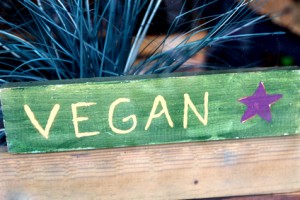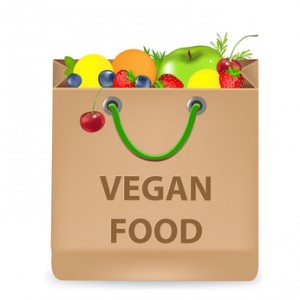 A vegan is someone who neither consumes nor uses any animal products. There are many different reasons for becoming a vegan, such as improving health, ethics or for environmental concerns. Veganism has many advantages and adopting this lifestyle can be a positive affirmation.
A vegan is someone who neither consumes nor uses any animal products. There are many different reasons for becoming a vegan, such as improving health, ethics or for environmental concerns. Veganism has many advantages and adopting this lifestyle can be a positive affirmation.
Depending on the foods consumed, a vegan diet can be either healthy or unhealthy. However, when a diet is based on a variety of whole foods, complete nutritional requirements are received. In general, vegans typically have lower rates of heart disease, cholesterol, diabetes and obesity. Since animal products create inflammation, a vegan diet may benefit conditions such as arthritis, asthma and fibromyalgia.
Questions may be raised about vegans obtaining adequate protein and calcium. Protein is abundant in many foods such as beans, legumes, nuts, whole-grains and vegetables. The theory about combining proteins in a meal was made popular when Frances Lappe wrote “Diet for a Small Planet.” However, ten years later, she recanted this information, stating that as long as a variety of foods are consumed and caloric needs are met, plant proteins do not need to be consumed in the same meal.
Calcium is adequately supplied from sources other than cow’s milk. It is abundant in foods such as almonds, greens and beans. Animal products can actually decrease calcium levels because as they raise the body’s acidity, calcium is leeched from the bones in order to maintain a balanced pH.
The main nutrients which vegans must be careful are iron and vitamin B12. Iron is found in meat as heme and plants as non-heme. Heme is more readily absorbed than non-heme, but by consuming vitamin C in the same meal, iron absorption is dramatically increased. Vitamin B12 should be supplemented, as it is not found in plants. But vitamin B12 does not come from meat and dairy; it comes from bacteria which grows in meat and dairy. So if vegans wash their fruits and vegetables, they will need to find an alternative source of vitamin B12.
Many choose to be vegan for ethical reasons. By omitting meat and dairy, vegans make a commitment not to support the killing and abuse of animals. According to organizations such as Vegan Peace and People for the Ethical Treatment of Animals, factory farms and slaughterhouses result in overcrowding, improper diet, filth and contamination. Animals are often fed grains, chemical concoctions and antibiotics when they should be eating grass. When the animals are killed, the procedure is often brutal to minimize time and maximize profits. Even when animals are treated humanely, they still must die for meat consumption. Dairy cows are often confined and artificially impregnated. Many spend their whole lives pregnant and attached to pumping machines. They live three to five years and are killed because they can no longer physically stand or produce milk. The calves are usually removed from their mothers; the females are used for dairy production and the males are used for veal.
Many become vegan for environmental reasons and in her article in the Guardian, Felicity Carus states the detriment caused by cattle grazing and fish farming. Rainforests are used for grazing livestock and to grow their feed. A big portion of the world’s grain is used to feed livestock. Air, water and soil are contaminated due to animal waste, antibiotics, hormones and chemicals. The nitrogen and phosphor emitted by manure leaks into the groundwater and creates pollution. Ammonia is given off through manure and can cause acid rain.
Wildlife is threatened in water as well as on land. Due to the concern of the impact of large-scale fishing, there is increased use of agriculture in the ocean. These farm-raised fish are fed wild-caught fish and are treated with chemicals that are being released into oceans to treat the disease resulting from overcrowding.
Adopting a vegan lifestyle can improve health, strengthen ethical values and benefit the planet. Though it may take some determination to overcome challenges, the benefits that people will find from becoming vegan are worth the extra effort.
References
Carus, Felicity. “UN urges Global Move Toward.” The Guardian. 02 June 2010. Web. 13 Jul 2012.
“Dairy.” Vegan Peace. 2008. Web. 11 Jul 2012.
“Environmental Destruction.” Vegan Outreach. Web. 12 Jul 2012.
“Environmental Destruction.” Vegan Outreach. Web. 12 Jul 2012.
Factory Farming: Cruelty to Animals.” People for the Ethical Treatment of Animals. Web. 11 Jul 2012.
Written by: elanger





